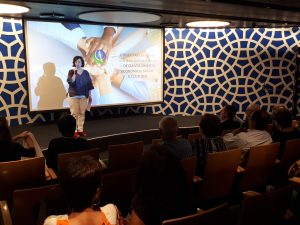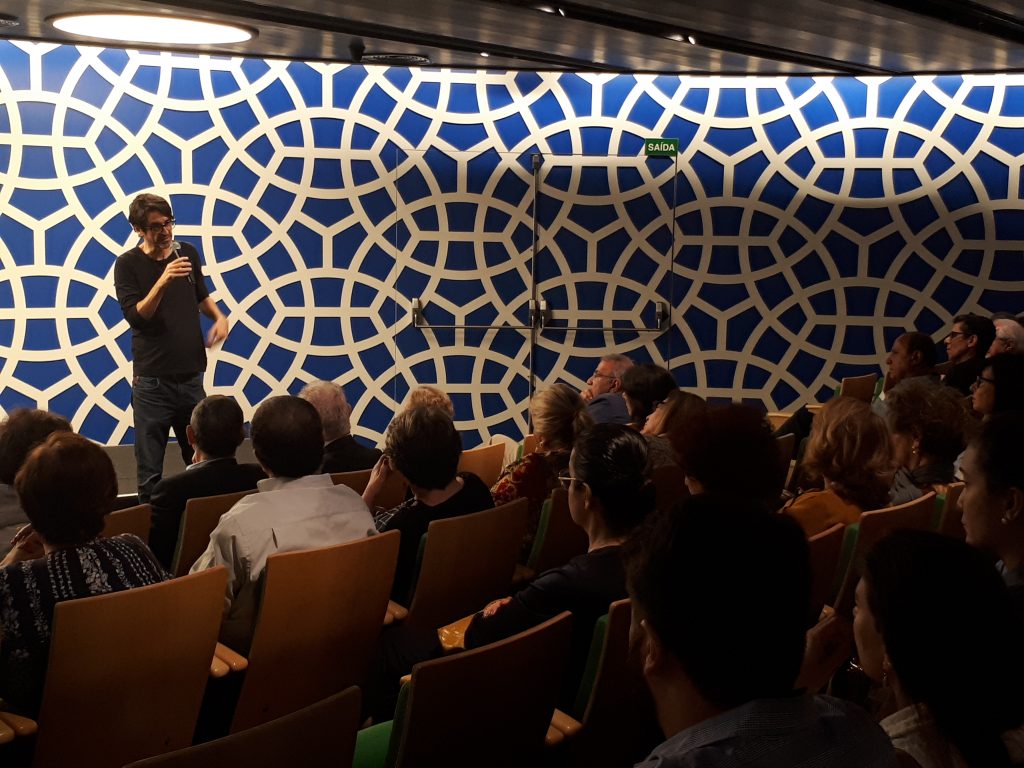São Paulo – Celebrating the tenth anniversary of the documentary Constantino, the Arab Brazilian Chamber of Commerce screened the movie last Wednesday’s night (2) in São Paulo. “It’s the first event of this kind at the current Arab Chamber’s headquarter. Now, we intend to screen many other movies like this,” said the Chamber’s cultural director Silvia Antibas.

The feature film was directed by Otavio Cury (pictured above), who traveled to Syria, where his great-grandfather was born, searching for an identity he describes as “fragmented” due to a language the became unintelligible and an ocean and a century separating him from his background. “Back at home, I’ve always heard ‘we Arabs are like this,’ but what does that mean? So, for me, [the movie] was a bridge to fulfill my hunger for an identity,” Cury said during a chat with the audience after the screening.
The movie is available on iTunes and the director believes that ten years after its debut he can see it more clearly. “I’m very glad for this opportunity as we directors, when we release a movie, we haven’t thought enough about it yet. We start thinking about the movie when it goes public, only then it’s really born. And this is a very complicated movie, especially with what has happened in Syria since then. Having the chance to screen it here at an Arab-Brazilian space, at a beautiful auditorium, around people really interested that know a lot about the history being told, means a a lot for me,” Cury told ANBA.
Reinventing the past
Cury’s grandfather migrated to Brazil and his family doesn’t speak Arabic anymore. The documentary came up while he was trying to translate a book that recounts the life story of his great-grandfather Daud Constantino Al-Khoury. The document was found by his family during a visit to Syria in 2001. Years later, in 2007, the moviemaker decided to work on it and finding out the vestiges of Daud’s life. “More than discovering him, I was free to reinvent my great-grandfather,” he said.
During his travels to the cities of Homs and Damascus, he found works Daud had pursued in theater, for example. “We only knew he had been a teacher. But he was the main collaborator of a guy who would later become the forerunner of the Arab theater. The movie tells a little about this retracing. It’s completely different tale of immigration. Of someone who searches for his own past – inaccessible since it’s in the past – having a theater and poetry book as his guide, and then there is this quest for this image, this poetry,” Otavio explained.
The book “The complete works by master Daud Constantino Al-Khoury” found by Otavio is being digitalized by the Arab Chamber. The director now works on new audiovisual projects. “After this movie, I became involved in a universe of Brazilian Indigenous peoples. I made two movies and am making a third now, which is the biograph of a former Funai president, who dedicated his life to isolated Indigenous. It’s somehow related to origins. Constantino was about my background and my identity. These next projects talk about Brazil’s,” he added.
Translated by Guilherme Miranda




